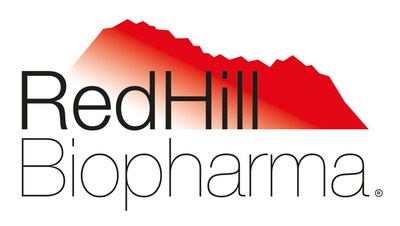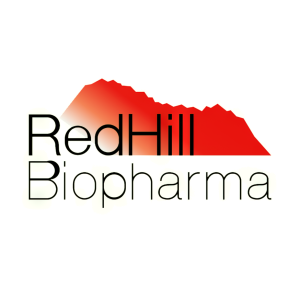RedHill's Oral Broad-Acting Antiviral, Opaganib, Granted New COVID-19 Treatment Patent
RedHill Biopharma (NASDAQ: RDHL) announced that the United States Patent and Trademark Office granted a new method of use patent for opaganib, aimed at treating COVID-19 pneumonia in patients requiring supplemental oxygen (FiO2 up to 60%). This patent protects findings from a Phase 2/3 study, which revealed a 62% reduction in mortality among treated patients. RedHill continues its development of opaganib, focusing on pivotal Phase 3 trial preparations and potential funding opportunities for pandemic preparedness.
- Granted patent for opaganib's use in COVID-19 treatment, expiring in 2041.
- Phase 2/3 study showed a 62% reduction in mortality for patients treated with opaganib.
- Ongoing development of opaganib includes collaborations with US agencies and non-dilutive funding.
- None.
USPTO grants new method of use patent for the inhibition of a disease caused by a coronavirus in patients having pneumonia and receiving supplemental oxygen at a fraction of inspired oxygen (FiO2) up to and including
Previous variant-agnostic efficacy data for opaganib, an investigational new drug for COVID-19 disease and several other viral diseases, highlights its promising profile as a broad acting, host-directed candidate therapy for pandemic preparedness
Development of opaganib for moderately severe COVID-19 patients is ongoing, including ongoing and planned pandemic preparedness research collaborations with US governmental agencies, pivotal Phase 3 trial design and regulatory clearances, and securing of external non-dilutive funding
TEL AVIV, Israel and RALEIGH, N.C., Oct. 19, 2022 /PRNewswire/ -- RedHill Biopharma Ltd. (NASDAQ: RDHL) ("RedHill" or the "Company"), a specialty biopharmaceutical company, today announced the granting by the United States Patent and Trademark Office (USPTO) of a further method of use patent that protects the administration of opaganib[1] for the inhibition of a disease caused by a coronavirus in a subgroup population of patients requiring a fraction of inspired oxygen (FiO2) up to and including

The new patent, expiring in 2041, titled "Sphingosine Kinase 2 Inhibitor for Treating Coronavirus Infection in Moderately Severe Patients with Pneumonia", protects the results from a post-hoc analysis from the global Phase 2/3 study in hospitalized patients with COVID-19 pneumonia (NCT04467840). This analysis of 251 study participants requiring a FiO2 up to and including
"COVID-19 continues to challenge public health providers and patients across the world and continues to be the cause of significant mortality and morbidity. Patients with moderately severe COVID-19 and pneumonia face a lack of treatment options capable of reducing mortality and getting patients out of hospital more quickly," said Danielle T. Abramson, Ph.D., SVP Global Head of Intellectual Property at RedHill. "This latest patent not only adds to the strong existing IP suite for opaganib but further provides for coverage for the patients most likely to benefit from its potential to treat people with COVID-19, pneumonia and who require supplemental oxygen – a key patient sub-group for which opaganib has already demonstrated nominally statistically significant efficacy in a large Phase 2/3 clinical trial."
Recent shifts in international and governmental policy, research, and funding have directed focus toward development of broad-acting, host-pathway targeting antivirals with activity against a range of viruses with the potential to prevent future viral pandemics. RedHill's novel, broad-acting, host-directed antiviral, opaganib, has shown, despite three years of continual viral mutation, encouraging signs of its potential against the COVID-19-causing SARS-CoV-2 variants, as well as additional data suggesting potential activity against various other viruses, including influenza A.
Opaganib's suggested host-directed mechanism of action was recently described in a manuscript entitled "Recent Progress in the Development of Opaganib for the Treatment of COVID-19" published in the journal Drug Design, Development and Therapy in July 2022. The paper outlines opaganib's multi-faceted potential to: inhibit multiple pathways, induce autophagy and apoptosis, and disrupt the viral RTC (replication-transcription complex) through simultaneous inhibition of three sphingolipid-metabolizing enzymes in human cells (SK2, DES1 and GCS). These mechanisms support the hypothesis of broad antiviral effect and attenuation of multi-organ dysfunction in COVID-19 patients. Moreover, because of its host-directed targeting, opaganib is unlikely to encounter viral resistance due to mutation, which may be a problem for direct-acting antivirals.
Late-stage development of opaganib is ongoing pending Phase 3 trial design regulatory approvals and securing of external funding.
About Opaganib (ABC294640)
Opaganib, a new chemical entity, is a proprietary, first-in-class, orally-administered, investigational sphingosine kinase-2 (SK2) selective inhibitor, with suggested dual anti-inflammatory and antiviral activity. Opaganib is host-targeted and, based on data accumulated to date, is expected to maintain effect against emerging viral variants, having already shown in vitro inhibition against variants of concern, including Omicron and Delta. Opaganib has also shown anticancer activity and positive preclinical results in renal fibrosis, and has the potential to target multiple oncology, viral, inflammatory, and gastrointestinal indications.
In prespecified analyses of Phase 2/3 clinical data, oral opaganib has demonstrated improved viral RNA clearance, faster time to recovery and significant mortality reduction in key patient subpopulations versus placebo on top of standard of care. Data from the opaganib global Phase 2/3 study has been submitted for peer review and recently published in medRxiv. Opaganib previously delivered promising U.S. Phase 2 data in patients with moderate to severe COVID-19, published in Open Forum Infectious Diseases.
Opaganib has also received Orphan Drug designation from the U.S. FDA for the treatment of cholangiocarcinoma and is being evaluated in a Phase 2a study in advanced cholangiocarcinoma and in a Phase 2 study in prostate cancer. Patient accrual, treatment and analysis in the prostate cancer study are ongoing.
Opaganib demonstrated potent antiviral activity against SARS-CoV-2, the virus that causes COVID-19, inhibiting viral replication of the original SARS-CoV-2 and variants tested to date in an in vitro model of human lung bronchial tissue. Additionally, preclinical in vivo studies have demonstrated opaganib's potential to decrease renal fibrosis, have shown decreased fatality rates from influenza virus infection, and amelioration of bacteria-induced pneumonia lung injury with reduced levels of IL-6 and TNF-alpha in bronchoalveolar lavage fluids.
References:
[1] Opaganib is an investigational new drug, not available for commercial distribution.
[2] Movantik® (naloxegol) is indicated for opioid-induced constipation (OIC). Full prescribing information see: www.movantik.com
[3] Talicia® (omeprazole magnesium, amoxicillin and rifabutin) is indicated for the treatment of H. pylori infection in adults. For full prescribing information see: www.Talicia.com.
[4] Aemcolo® (rifamycin) is indicated for the treatment of travelers' diarrhea caused by noninvasive strains of Escherichia coli in adults. For full prescribing information see: www.aemcolo.com.
About RedHill Biopharma
RedHill Biopharma Ltd. (NASDAQ: RDHL) is a specialty biopharmaceutical company primarily focused on gastrointestinal and infectious diseases. RedHill promotes the gastrointestinal drugs, Movantik® for opioid-induced constipation in adults[2], Talicia® for the treatment of Helicobacter pylori (H. pylori) infection in adults[3], and Aemcolo® for the treatment of travelers' diarrhea in adults[4]. RedHill's key clinical late-stage development programs include: (i) RHB-204, with an ongoing Phase 3 study for pulmonary nontuberculous mycobacteria (NTM) disease; (ii) opaganib (ABC294640), a first-in-class oral SK2 selective inhibitor targeting multiple indications with a Phase 2/3 program for hospitalized COVID-19 and Phase 2 studies for prostate cancer and cholangiocarcinoma ongoing; (iii) RHB-107 (upamostat), an oral serine protease inhibitor in a Phase 3-stage study as treatment for non-hospitalized symptomatic COVID-19, and targeting multiple other cancer and inflammatory gastrointestinal diseases; (iv) RHB-104, with positive results from a first Phase 3 study for Crohn's disease; and (v) RHB-102 , with positive results from a Phase 3 study for acute gastroenteritis and gastritis and positive results from a Phase 2 study for IBS-D. More information about the Company is available at www.redhillbio.com/ twitter.com/RedHillBio.
This press release contains "forward-looking statements" within the meaning of the Private Securities Litigation Reform Act of 1995. Such statements may be preceded by the words "intends," "may," "will," "plans," "expects," "anticipates," "projects," "predicts," "estimates," "aims," "believes," "hopes," "potential" or similar words. Forward-looking statements are based on certain assumptions and are subject to various known and unknown risks and uncertainties, many of which are beyond the Company's control and cannot be predicted or quantified, and consequently, actual results may differ materially from those expressed or implied by such forward-looking statements. Such risks and uncertainties include the risk that opaganib will not be shown to be broad acting, host-directed candidate therapies for pandemic preparedness, the risk that a pivotal Phase 3 trial for opaganib will not be initiated or that such trial be successful and, even if successful, such study and results may not be sufficient for regulatory applications, including emergency use or marketing applications, and that additional COVID-19 studies for opaganib are required by regulatory authorities to support such potential applications and the use or marketing of opaganib for COVID-19 patients, that opaganib will not be effective against emerging viral variants, as well as risks and uncertainties associated with (i) the initiation, timing, progress and results of the Company's research, manufacturing, preclinical studies, clinical trials, and other therapeutic candidate development efforts, and the timing of the commercial launch of its commercial products and ones it may acquire or develop in the future; (ii) the Company's ability to advance its therapeutic candidates into clinical trials or to successfully complete its preclinical studies or clinical trials (iii) the extent and number and type of additional studies that the Company may be required to conduct and the Company's receipt of regulatory approvals for its therapeutic candidates, and the timing of other regulatory filings, approvals and feedback; (iv) the manufacturing, clinical development, commercialization, and market acceptance of the Company's therapeutic candidates and Talicia®; (v) the Company's ability to successfully commercialize and promote Movantik®, Talicia® and Aemcolo®; (vi) the Company's ability to establish and maintain corporate collaborations; (vii) the Company's ability to acquire products approved for marketing in the U.S. that achieve commercial success and build and sustain its own marketing and commercialization capabilities; (viii) the interpretation of the properties and characteristics of the Company's therapeutic candidates and the results obtained with its therapeutic candidates in research, preclinical studies or clinical trials; (ix) the implementation of the Company's business model, strategic plans for its business and therapeutic candidates; (x) the scope of protection the Company is able to establish and maintain for intellectual property rights covering its therapeutic candidates and commercial products and its ability to operate its business without infringing the intellectual property rights of others; (xi) parties from whom the Company licenses its intellectual property defaulting in their obligations to the Company; (xii) estimates of the Company's expenses, future revenues, capital requirements and needs for additional financing; (xiii) the effect of patients suffering adverse events using investigative drugs under the Company's Expanded Access Program; and (xiv) competition from other companies and technologies within the Company's industry. More detailed information about the Company and the risk factors that may affect the realization of forward-looking statements is set forth in the Company's filings with the Securities and Exchange Commission (SEC), including the Company's Annual Report on Form 20-F filed with the SEC on March 17, 2022. All forward-looking statements included in this press release are made only as of the date of this press release. The Company assumes no obligation to update any written or oral forward-looking statement, whether as a result of new information, future events or otherwise unless required by law.
Category: R&D
Company contact: Adi Frish Chief Corporate & Business Development Officer RedHill Biopharma +972-54-6543-112 |
Logo: https://mma.prnewswire.com/media/1334141/RedHill_Biopharma_Logo.jpg
![]() View original content:https://www.prnewswire.com/news-releases/redhills-oral-broad-acting-antiviral-opaganib-granted-new-covid-19-treatment-patent-301653409.html
View original content:https://www.prnewswire.com/news-releases/redhills-oral-broad-acting-antiviral-opaganib-granted-new-covid-19-treatment-patent-301653409.html
SOURCE RedHill Biopharma Ltd.
FAQ
What is the recent patent granted to RedHill Biopharma for?
What are the efficacy results of opaganib from the Phase 2/3 study?
What is the significance of the new patent for opaganib?







